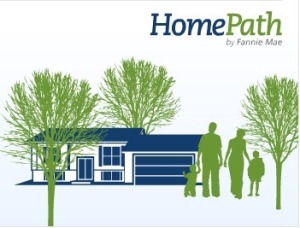Tags
a cracked window, Affordable Mortgage rates, As our clients are thinking of moving from renter’s to homeowners, but most of the time it refers to the percent of investor-owned units. If that number is too high the condo may be considered non-warrantable. This can apply for conventional as well as FHA financing., City of Miramar, City of Pembroke Pines, exposed wiring, First time home buyers, FL, FL Homes, Florida Real Estate Market, Low interest rates, Low mortgage interest rates, Miramar Real Estate, Mortgage interest rates, Mortgage News, Mortgage tips, or a green pool. By avoiding an appraisal you (or the seller) no longer have to deal with any of these items as a requirement to close. Very relevant to Homepath properties, or when our investor clients are looking to acquire new properties, peeling paint, South Florida Home loans, South Florida Real Estate, the borrower may finance the funds needed for renovation of the property into the loan amount. However, the question of buying a foreclosure often comes up. One special type of foreclosure property is a Fannie Mae Homepath property. Today we hear from my good friend and colleague Matthew Coates (@realto, this DOES require an appraisal. - financing for condos becomes easier – many condo project requirements are waved. Currently most mortgage companies will not lend on condo projects that are not cons, this type of financing can only be used on Fannie Mae homes, which are homes taken back by the bank from the previous owner by foreclosure. Fannie Mae offers a special lending program which can benefit both investors and owner-occupants. Here are the details of
 As our clients are thinking of moving from renter’s to homeowners, or when our investor clients are looking to acquire new properties, the question of buying a foreclosure often comes up. One special type of foreclosure property is a Fannie Mae Homepath property. Today we hear from my good friend and colleague Matthew Coates (@realtormatthew) on Homepath Financing.
As our clients are thinking of moving from renter’s to homeowners, or when our investor clients are looking to acquire new properties, the question of buying a foreclosure often comes up. One special type of foreclosure property is a Fannie Mae Homepath property. Today we hear from my good friend and colleague Matthew Coates (@realtormatthew) on Homepath Financing.
I frequently get asked by buyers “What is this Fannie Mae Homepath financing and does it make sense for me?”
First of all, this type of financing can only be used on Fannie Mae homes, which are homes taken back by the bank from the previous owner by foreclosure. Fannie Mae offers a special lending program which can benefit both investors and owner-occupants.
Here are the details of the program:
– no appraisal required – traditionally when you purchase a home using financing an appraisal (estimate of value) is required by the underwriter. If the home is not considered livable by the appraiser he may require those repairs to be done prior to closing. These repairs may include items like no dishwasher in the home, peeling paint, a cracked window, exposed wiring, or a green pool. By avoiding an appraisal you (or the seller) no longer have to deal with any of these items as a requirement to close. Very relevant to Homepath properties, the borrower may finance the funds needed for renovation of the property into the loan amount. However, this DOES require an appraisal.
– financing for condos becomes easier – many condo project requirements are waved. Currently most mortgage companies will not lend on condo projects that are not considered warrantable. The definition of warrantable varies by lender, but most of the time it refers to the percent of investor-owned units. If that number is too high the condo may be considered non-warrantable. This can apply for conventional as well as FHA financing.
– smaller down payment – 3% down for owner-occupied vs. traditional 3.5% and 10% down for investors/2nd home buyers vs. traditional 20%
– no mortgage insurance – this can save up to 1.5% of the loan amount which is usually tacked on top of the loan
– typically higher interest rates – because Homepath financing has more lax requirements and small down payment amounts the interest rates are traditionally higher
higher closing costs contribution from Fannie Mae – Homepath also allows higher seller contributions towards closing costs than most other loan programs. 6-9% is allowed on a primary home (typically 2% on investor purchase)
Is Homepath financing right for everyone? Of course not. But it can be an attractive option for a home in disrepair where the buyer doesn’t have much cash available. Homepath can be a great way to build equity quickly!
If you or anyone you know would like to sell, buy or rent Real Estate, please contact me at 954-895-7123 or email me at shaunclarke@keyes.com
Thank you and Enjoy your day!!
